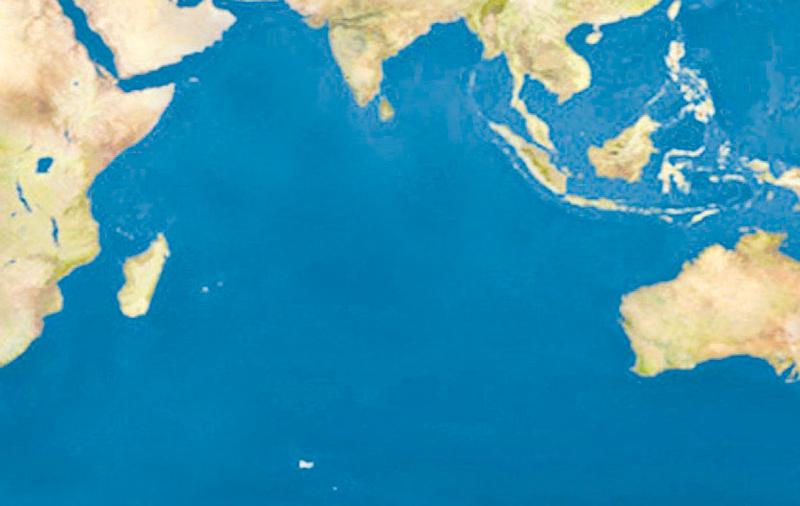
Many Moons ago, two of the grouping the US Quad: the US, India, Japan and Australia formulated a Report “The Indian Ocean Region: Security, Stability, and Sustainability, over a series of meetings in Melbourne. The report argued that these two countries should take the lead role in developing regional security agendas. The report argues that China should be an integral part of the Indian Ocean of a new Indian Ocean strategic order to maximise long-term regional security.
The report calls for Beijing to recognise India’s legitimate role in the Pacific Ocean security, just as India would recognise Beijing’s role in the Indian Ocean. The country where this report found its origins argues that this arrangement could avoid the danger of having to choose between Indian and Chinese security needs.
Hidden tower
The report highlights that the US, India and China are involved in a three-way contest for influence in the IOR, and China mainly seems to use aid as a weapon of influence.
The report said that the Indian Ocean security systems are under-developed, which brings UNCLOS into the picture having failed to address China’s interests in the China Seas, but the main theme of the report is to integrate the Indian Ocean and Pacific Oceans into the “New Indo-Pacific region” concept.
The report’s concept relies on the key role of Sea Lane Trade Routes from the Persian Gulf through the Indian Ocean around to the East Asian trade routes of the Pacific Ocean, and considers those routes as a united strategic entity “that constitutes the Indo-Pacific”.
The grand strategic issues also need to include the main players in a way that respects China’s interest and recognise the Sea Lanes as a “common good” of the Asia Pacific Region whose paramount security need essentially is energy.
The writer, being a Global Petroleum Analyst domiciled in Australia for the past 35 years, sees the collateral damage done to my host country because of being aligned to a group formed to curb the assertiveness of a rising star in the Pacific Region that is challenging the incumbent sole superpower that in all fairness is also answerable for the lapse on the part of UNCLOS which in turn has failed to address China’s legitimate concerns in the busy criss-crossing and turbulent seas of the Indo-Pacific Region.
China, the most important player in the Asia Pacific region, is also taking the lead role as its growth enginewhich, one time, was the role of the now exhausted sole superpower, the US, which has since the arrival of its new President Trump, lost interest in the Indo-Pacific Region when on the first day of assuming office on January 20, 2016 saw that the Trans Pacific Partnership (TPP) Agreement disposed into the bin and two of its partners in this Quad: Japan and Australia that spent all their energies of getting the TPP together even burning the midnight oil so to say specially Australia which was then holding the two-year Chair of IOR-ARCnot doing anything of significance for the latter probably because of the TPP’s importance being the one that mattered, and Japan who was to gain most from the TPP. It would have been even the last straw of Japan’s former PM Abe, who envisaged that it was to be their much needed salvation.
Code of Conduct
Of course, President Trump’s main election platform was ‘America First’ which he has steadfastly stood by, and that we could understand, especially after one important lesson of Covid-19 that no person or country has been spared in its deadly wake, and therefore, it is time to stop nit-picking and close ranks for the sake of humanity.
It is up to bodies, such as UNCLOS to put in place a “Code of Conduct” that has been talked about only but not put into a set of rules based statute, instead of accusing of unruly behaviour by China not under any sort of fiduciary type rules and exposed to what one might think to be the “Law of the Jungle” like it was before the Truman Proclamations after WWW in 1945 and the final UNCLOS (Three) in 1982 chaired by Sri Lanka’s respected UN Diplomat the late Shirley Amerasinghawho saw it put into statute, but UNCLOS has not seen any reforms since to meet the challenges of the 21st Century in the Asia Pacific which is a terrible lapse on its part when we now see that a sleeping lion like China who Napoleon Bonaparte once said was not to be awakened as he warned that it will ‘Rock the World’ in its wake.
Without a “Code of Conduct” in place, any unwarranted behaviour or damage done would be a collective responsibility of those who are also China’s adversaries like the ones in the Quad.
